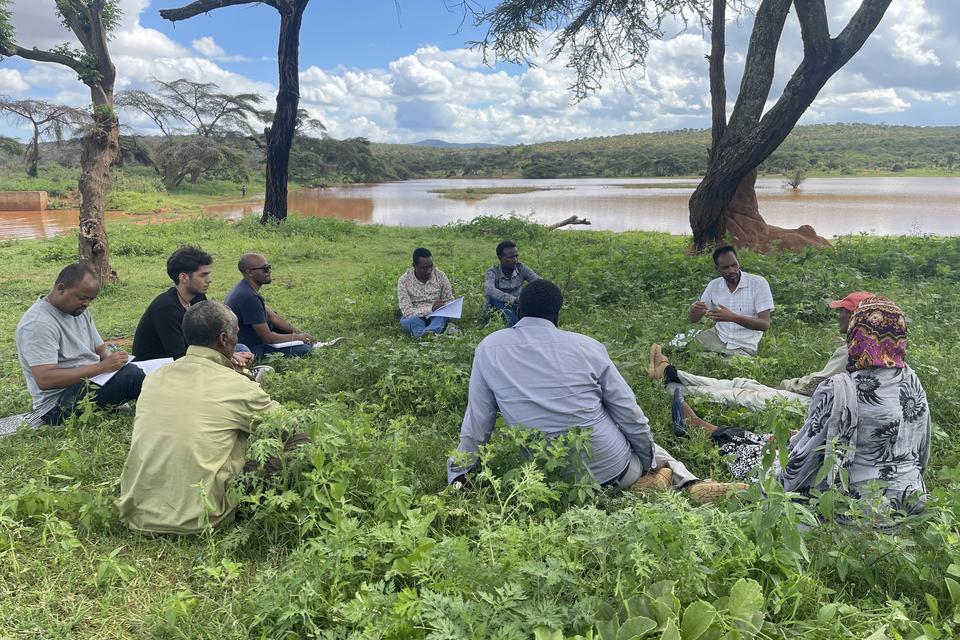Human-Centered Design Workshop to enhance pastoralists’ resilience in Ethiopia
- From
-
Published on
02.06.23

Like many arid and semi-arid regions in Africa, the zone is highly vulnerable to extreme weather events such as drought, thereby putting the lives and livelihoods of millions of peoples at risk. During the dry season, water scarcity becomes a prominent concern, and become scarce for domestic and livestock use. For instance, the years 2021 and 2022 were recorded as the worst drought years over the last 40 years in the Zone which caused 3.3 million livestock death due to water and feed scarcity. Addressing this challenge calls for an integrated approach that combines traditional knowledge, scientific research, and cutting-edge technology.
The Alliance of Bioversity International and CIAT in collaboration with Ministry of Agriculture (MoA), Ethiopian Agricultural Research Institute (EIAR), Oromia Agricultural Research Institute (OARI), United States Geological Survey (USGS), along with other key national and local institutions has been implementing a project to develop a livestock water monitoring system to improve drought management and build climate resilience through financial support from the Bill and Melinda Gates Foundation (BMGF).
The Livestock Water Monitoring and Risk Management System Project is designed to provide near real-time surface water information in pastoral areas of Ethiopia. By utilizing remote sensing technologies, satellite imagery, and on-ground sensors, the system captures essential data points such as water levels, flow rates, and water source conditions. To enhance pastoralists’ resilience through accesses to a near real-time water resource information, The Alliance of Bioversity International and CIAT in collaboration with partners organized “Human-Centered Design (HCD) Approach for Livestock Water Source Monitoring and Risk Management” workshop on May 19th 2023 in Yabello (local level), Ethiopia and May 24th 2023 at ILRI’s Addis Ababa campus (national level), Ethiopia. The workshop was supported by the HCD team of the Digital Inclusion Lever of the Alliance.
The workshops were specifically designed to address the needs and gather valuable insights from the real end-users including pastoralists and decision-makers. By applying a HCD approach, the project aimed to build a solution that truly aligns with the requirements and challenges faced by pastoralists to buffer the adverse effects of climate induced risks.
